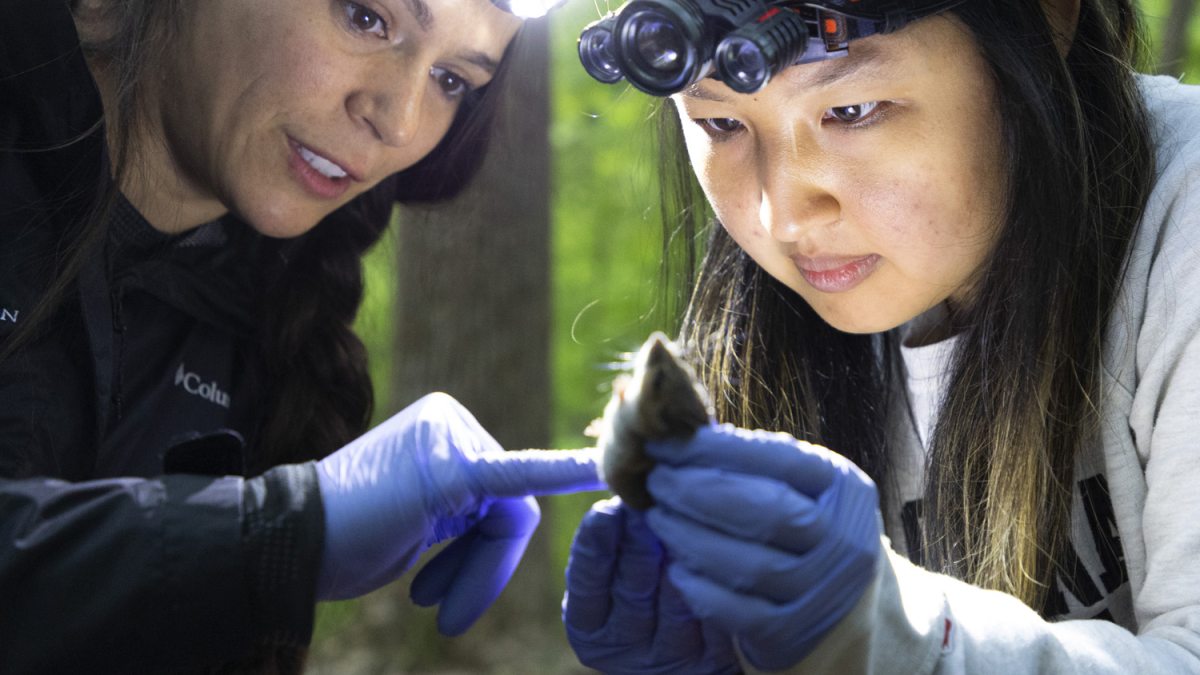Tar Heels gain real-world experience at research field sites
At the UNC Institute for the Environment's field sites, Tar Heels are examining real-world issues through coursework, field trips, group research projects and internships with local organizations to gain first-hand experience and serve our state.

Learning doesn’t happen just in Chapel Hill classrooms. Experiential learning in the field is an important part of a Carolina education and can help inspire students’ work.
The UNC Institute for the Environment — in collaboration with the College of Arts and Sciences’ Environment, Ecology and Energy Program and the Study Abroad Office — helps provide that spark for student scientists and researchers at five unique field sites, where undergraduates get first-hand field research experience through semester-long programs.
In small cohorts at the field sites, students explore real-world issues through coursework, field trips, group research projects and internships with local organizations. Students can study ecology in Highlands, North Carolina, and Morehead City, North Carolina; environmental infrastructure in Manteo, North Carolina; sustainability in Chapel Hill; and energy in Thailand.
“The overarching shared goal is to provide an experience that prepares students for the future when they become problem solvers in their communities and disciplines,” said Susan Cohen, an associate director of the Institute for the Environment.
Cohen, who oversees the field sites, discussed the goal of the field sites programs and the student experience at the field sites.
What do students experience during their semester at the field site?
The students experience a combination of indoor and outdoor classroom time and fieldwork at all the field sites. So much of the learning happens outside, but they are also attending seminars and directly engaging with leaders in relevant science fields, processing samples in labs, conducting independent research or working at internships with a local group, and of course, working with their peers to answer a research question through a capstone project.
Students engage with local professionals and develop relationships with their professors. And there is free time to kayak, camp, hike, fish, explore, swing in a hammock and cook out. The students embrace the community, and the community embraces them as well.
It is a lot of work. Field site directors expect a lot of effort, but the reward is huge. The field site capstone class, in many ways, reflects the way we all work on projects together – local partners, collaboration and multidisciplinary contributions.
What kind of research are students involved in at the different field sites?
Each site focuses on themes specific to community partners and the region where they are studying but with broad applications. The Morehead City Field Site tends to be oriented towards marine science, while the Outer Banks site emphasizes policy and decision-making – both in the coastal context of climate and society. At the Highlands Field Site, students focus on Appalachian ecology and the impacts of humans on the landscape, again with a broad application of lessons learned and the development of skills. In Thailand, students study energy and environmental challenges in Asia while also exploring a new culture. Here in Chapel Hill, the field site focuses on sustainability issues impacting the community near campus.
All sites think about environmental challenges that impact the local society and how applied research can help address those challenges — and then the students do the science and answer the questions.
What kind of students chose to participate in the field sites? Are they all STEM majors?
All kinds of students come to the field sites, and they are open to all majors. We do have a lot of students from the environmental sciences, but I see many different majors and minors, from business to geography to music.
Environmental challenges are complex and require inputs from many disciplines, and that is the case at the field sites; a diversity of students contributing to the efforts. Students do not have to be marine science minors to attend the Morehead City Field Site, policy majors to go to the Outer Banks or ecologists to go to Highlands Field Site. In fact, broadening viewpoints and reaching outside of majors reflects the real world.
Why are these hands-on experiences important for students?
Students need real-world experiences that include mentored problem-solving and collaboration.
What they learn is applicable broadly. We want to set them up for success to graduate into their next steps with a strong record and strong connections to professors and networks they developed at the field sites.




